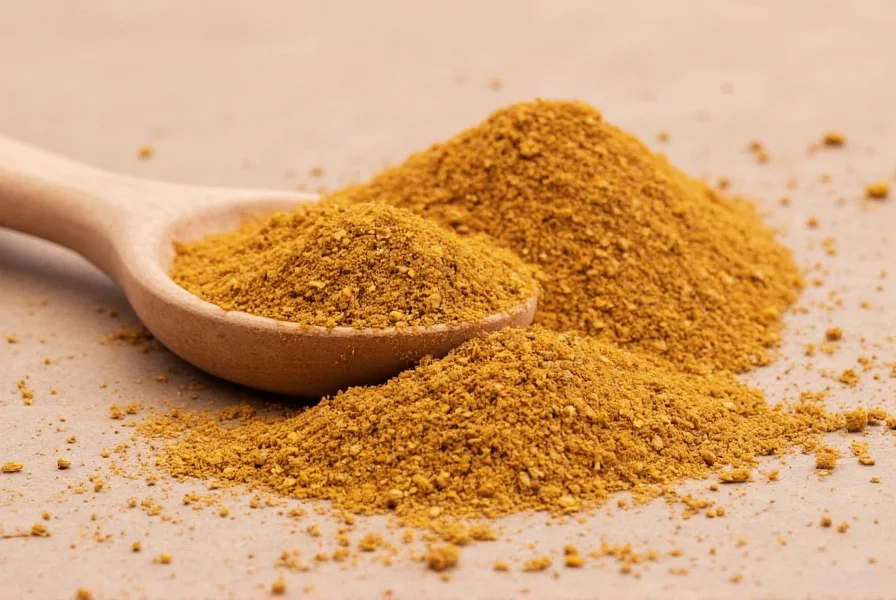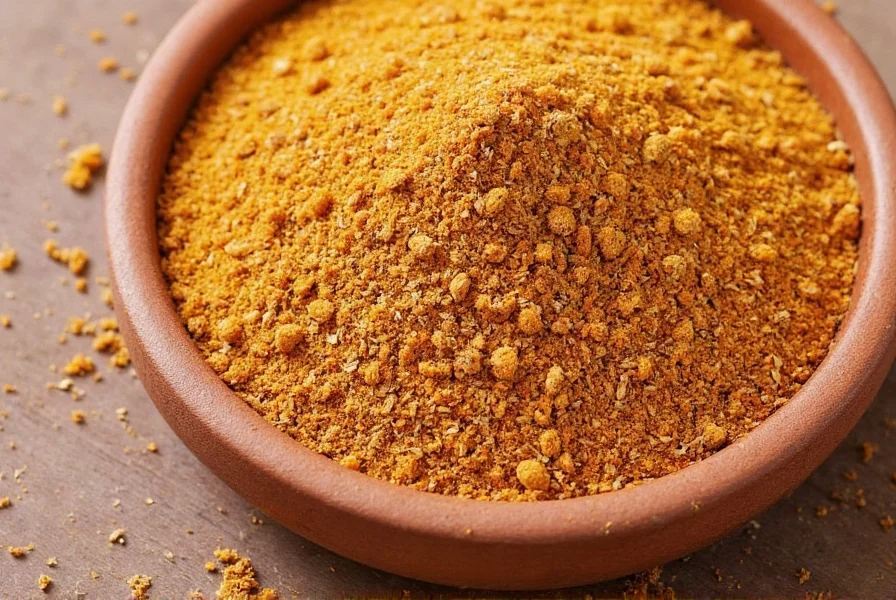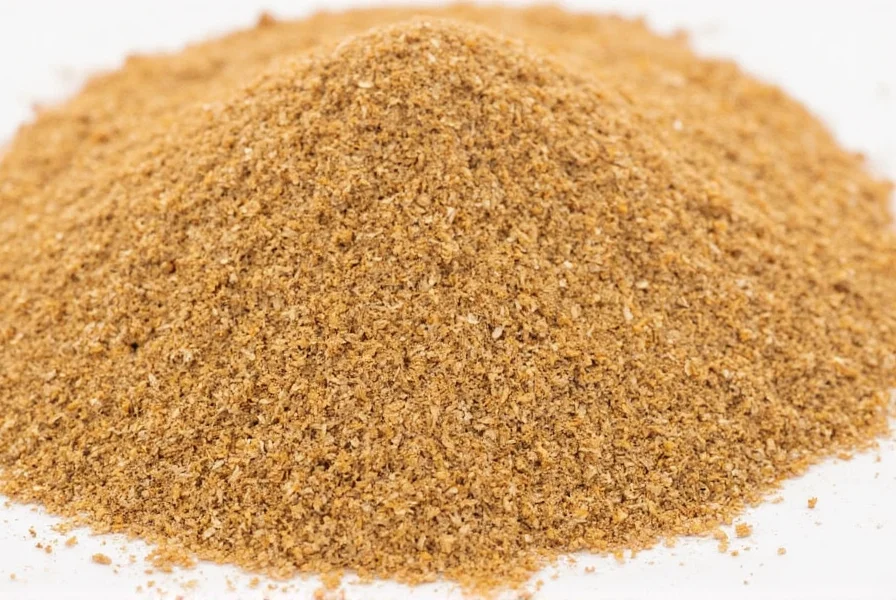Cumin, the earthy, warm spice commonly found in curry blends and chili powders, has been used for centuries in traditional medicine and culinary practices. Modern research increasingly validates many of these traditional uses, revealing cumin's impressive nutritional profile and potential health advantages. This comprehensive analysis examines what scientific evidence tells us about cumin's effects on human health.
Nutritional Profile of Cumin
Just one teaspoon (2.1 grams) of ground cumin contains valuable nutrients that contribute to its health-promoting properties:
| Nutrient | Amount per Teaspoon | % Daily Value |
|---|---|---|
| Iron | 1.4 mg | 8% |
| Manganese | 0.2 mg | 10% |
| Magnesium | 12 mg | 3% |
| Calcium | 17 mg | 1% |
| Dietary Fiber | 0.6 g | 2% |
Beyond these basic nutrients, cumin contains bioactive compounds like cuminaldehyde, terpenes, and phenolic acids that contribute significantly to its health benefits. These compounds give cumin its distinctive aroma while providing antioxidant and anti-inflammatory effects that support overall wellness.
Science-Backed Health Benefits of Cumin
Improved Digestion and Gut Health
One of cumin's most well-documented benefits relates to digestive health. Research published in the Journal of Ethnopharmacology found that cumin stimulates digestive enzyme secretion, enhancing the breakdown of food and nutrient absorption. People searching for is cumin good for digestion will find substantial evidence supporting this traditional use.
A clinical trial involving 58 participants with irritable bowel syndrome showed that those who consumed cumin extract experienced significant reductions in bloating, abdominal pain, and other digestive discomforts compared to the placebo group. The study concluded that cumin's carminative properties help relax gastrointestinal muscles and reduce gas formation.
Powerful Antioxidant Properties
Cumin ranks among spices with the highest antioxidant capacity. A study in Food Chemistry measured cumin's ORAC (Oxygen Radical Absorbance Capacity) value at 66,800 μmol TE/100g, significantly higher than many common foods. These antioxidants combat oxidative stress, which contributes to chronic diseases and aging.
Researchers have identified multiple compounds in cumin—including flavonoids and phenolic acids—that work synergistically to neutralize free radicals. This makes cumin an excellent addition for those seeking natural antioxidant sources in cooking.

Blood Sugar Regulation
Several studies suggest cumin may help regulate blood glucose levels, making it potentially beneficial for people with prediabetes or type 2 diabetes. In a randomized controlled trial published in Nutrition Research, participants who consumed 75mg of cumin extract daily for eight weeks showed significant improvements in fasting blood sugar and HbA1c levels compared to the control group.
The mechanism appears related to cumin's ability to enhance insulin sensitivity and protect pancreatic beta cells. However, individuals taking diabetes medication should consult their healthcare provider before significantly increasing cumin intake, as it may enhance medication effects.
Anti-Inflammatory Effects
Chronic inflammation underlies many serious health conditions. Cumin contains compounds that inhibit inflammatory pathways in the body. A 2020 review in Phytotherapy Research analyzed multiple studies and concluded that cumin demonstrates significant anti-inflammatory activity by reducing markers like C-reactive protein and interleukin-6.
These effects make cumin a valuable component of an anti-inflammatory diet for chronic conditions, though it should be viewed as complementary to, not a replacement for, medical treatment.
Potential Side Effects and Considerations
While cumin is safe for most people when consumed in typical culinary amounts, certain considerations apply:
- Medication interactions: Cumin may interact with diabetes medications (potentiating their effects) and blood thinners like warfarin
- Digestive sensitivity: Some people experience heartburn or stomach upset with large amounts
- Pregnancy: Culinary amounts are generally safe, but medicinal doses should be avoided during pregnancy
- Allergies: Rare, but possible, especially in individuals sensitive to other spices in the Apiaceae family
How to Incorporate Cumin into Your Diet
Maximizing cumin's health benefits while enjoying its flavor is straightforward:
- Dry roast whole seeds: Lightly toast cumin seeds in a dry pan before grinding to enhance flavor and bioactive compound availability
- Combine with healthy fats: Cumin's fat-soluble compounds are better absorbed when consumed with oils, avocado, or nuts
- Add to legumes: Sprinkle on beans or lentils to improve digestibility and reduce gas formation
- Make golden milk: Add to warm milk with turmeric for an anti-inflammatory beverage
- Season roasted vegetables: Toss with olive oil and cumin before roasting for enhanced flavor and nutrition

Cumin Compared to Other Spices
While cumin offers unique benefits, understanding how it compares to other common spices provides valuable context. Unlike turmeric (which excels in anti-inflammatory properties) or cinnamon (known for blood sugar regulation), cumin stands out for its digestive benefits and iron content. Combining various spices creates synergistic health effects greater than any single spice alone.
For those researching is cumin better than other spices for health, the answer depends on specific health goals. Cumin's particular strength lies in digestive support, making it an excellent choice for those with occasional digestive discomfort.
Conclusion: Is Cumin Good for You?
The evidence strongly supports that cumin is good for you when consumed as part of a balanced diet. Its impressive nutritional profile, digestive benefits, antioxidant capacity, and potential blood sugar regulation effects make it a valuable addition to most people's pantries. While not a miracle cure, regular culinary use of cumin contributes to overall wellness without significant risks for most individuals.
As with any dietary component, moderation is key. Using cumin as a flavorful seasoning rather than relying on it as a medicinal treatment represents the most evidence-based approach. Those with specific health conditions or taking medications should consult healthcare providers about appropriate consumption levels.











 浙公网安备
33010002000092号
浙公网安备
33010002000092号 浙B2-20120091-4
浙B2-20120091-4